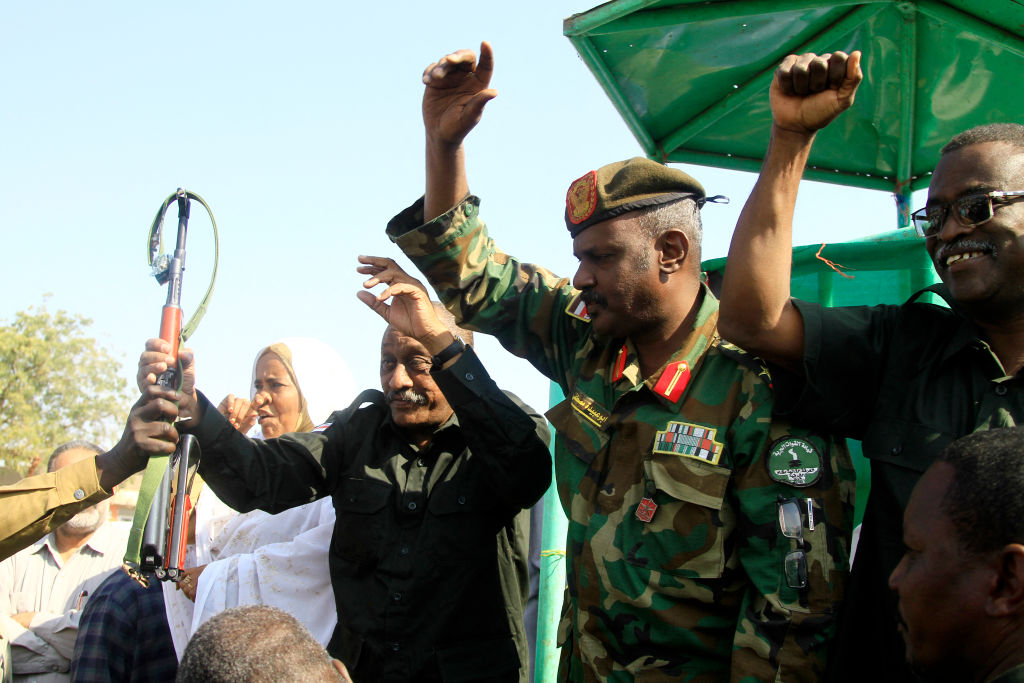Sudanese Army Aims to Regain Ground, Public Support Against RSF
ADF STAFF
After losing ground for months, the Sudanese Armed Forces have launched new offensives against the opposition paramilitary Rapid Support Forces, reclaiming some territory in Omdurman, among other places. It is unclear how successful the new offensive will be.
Observers have pointed out since the conflict began in April 2023 that the Rapid Support Forces (RSF) are, in the words of analyst Michael Horton, “nimble, capable, and self-financing” because of the extensive gold smuggling operations of their leader, Gen. Mohamed Hamdan “Hemedti” Dagalo.
Before Hemedti split with Sudanese Armed Forces (SAF) leader Gen. Abdel Fattah al-Burhan, the highly mobile RSF had been used as a form of infantry for the SAF, which relied primarily on heavy weapons and aircraft.
Although both forces are evenly matched in manpower, the RSF has used its mobility and battle-hardened fighters to take control of much of the west and south of Sudan. The SAF controls the Nile River corridor and the eastern provinces, along with pockets within RSF territory.
In late January, al-Burhan, who operates from Port Sudan, announced a shift in strategy designed to take the fight to the RSF.
“We will no longer be on the defensive,” al-Burhan told troops in Kassala State. “We will advance and attack with the forces of the movements from all directions, from Darfur and the eastern states, the central states, and the northern states, relying on the will and determination of the Sudanese people who stand united with their armed forces against these rebels.”
The announcement marked the official transition from a defensive posture to an offensive strategy against the RSF almost nine months after the conflict began, according to the Sudan Tribune.
As part of his new anti-RSF campaign, al-Burhan has used his power as Sudan’s de facto president to deny humanitarian aid to regions under RSF control.
After the outbreak of fighting between the RSF and SAF, al-Burhan launched a recruitment drive, bringing existing militias to his side, training soldiers in guerrilla tactics and arming the SAF for guerrilla fighting. The SAF also has opened training camps for women and girls.
Al-Burhan also has reestablished relations with Iran, which has begun providing the SAF with drone aircraft that provide new capacities for reconnaissance and precision attacks. The Sudan War Monitor has reported the presence of cargo planes belonging to the Iranian Revolutionary Guard at airstrips controlled by the SAF.
“One of the main reasons considered to have prompted the Sudanese army to re-establish relations with Iran is its intention to get military assistance at a time when its forces have suffered major setbacks against the RSF,” analyst Marc Español wrote recently for The New Arab.
In recent weeks, the SAF has launched attacks into RSF-held areas of Omdurman to break the siege on the engineers corps located there. The SAF also has launched attacks on RSF fighters around military outposts in southern and western Khartoum.
“For the first time since the outbreak of the war, they [SAF] have achieved slow but significant advances,” Español wrote.
In early February, al-Burhan visited the front lines in Omdurman.
Even as it scores battlefield victories, the SAF still must rebuild public support, particularly in areas it has ceded to the RSF. After the fall of Wad Madani in December, al-Burhan faced calls from Sudanese civilians to step down as commander of the SAF. Meanwhile, in places like River Nile State, thousands of civilians are arming themselves against the possible RSF incursion.
“People mostly think that the army can’t protect them now,” Suleiman al-Sadig, a lawyer from Atbara, a city in River Nile State, told Al-Jazeera recently.


Comments are closed.